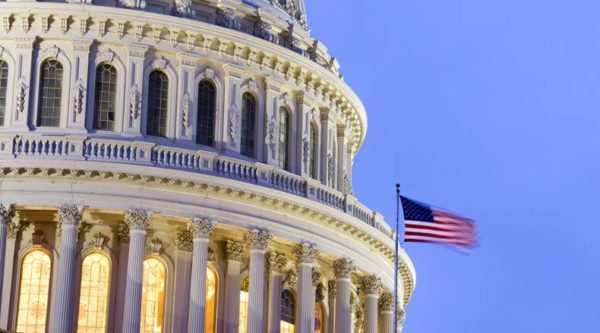
- Details
- By Shaun Griswold
The U.S. government has begun to reopen after services were shuttered for 43 days due to congressional disputes over federal spending.
After the House of Representatives passed legislation to reopen the federal government on Wednesday night, President Donald Trump signed a spending bill that includes immediate funding for the Supplemental Nutrition Assistance Program (SNAP). The bill ensures full payments to at least 42 million Americans who lost food aid benefits in November.
Full coverage for SNAP this month, estimated at $9 billion, also resolved an issue before the Supreme Court.
Following Trump’s signature, U.S. Solicitor General John Sauer filed a motion with the Supreme Court on Thursday to withdraw the federal government from a case that disputed full SNAP payments by redirecting reserves while the government remained shut down.
The Supreme Court had previously paused an order from a Rhode Island federal judge that required the Trump administration to fully pay SNAP benefits to states and individuals who had not received them beginning Nov. 1.
“Because the underlying dispute here is now moot,” the government wrote in its filing Thursday.
Trump’s signature also authorizes SNAP funding through 2026 and replenishes the $6 billion contingency fund that was triggered at the end of October. The spending bill provides funding for all federal agencies through Jan. 30, 2026.
Tribal nations across the country had prepared extensively for the prolonged shutdown. Emergency orders directed food aid through increased inventory purchases at tribally run food banks and larger meat harvests through tribally managed natural resources.
The National Congress of American Indians praised the spending bill for restoring SNAP funding “so states can resume issuing benefits that millions of families lost during the shutdown.”
“Still, this moment underscores an enduring reality: temporary fixes are not enough. Government shutdowns and stopgap funding force Tribal governments to divert time and resources away from serving our people,” the group said in a statement. “Data and testimonies obtained during the shutdown made clear how fragile the status quo is for Tribal communities. The solution is lasting, structural funding reform.”
More Stories Like This
Native News Weekly (August 25, 2024): D.C. BriefsUS Presidents in Their Own Words Concerning American Indians
Rep. Grijalva Pepper-Sprayed by ICE Agents During Restaurant Raid
Next on Native Bidaské: Preserving Indian Health with A.C. Locklear
Hozhonigo Institute Helps Drive $34.5M in Grant Pipeline for Tribal Communities
Help us defend tribal sovereignty.
At Native News Online, our mission is rooted in telling the stories that strengthen sovereignty and uplift Indigenous voices — not just at year’s end, but every single day.
Because of your generosity last year, we were able to keep our reporters on the ground in tribal communities, at national gatherings and in the halls of Congress — covering the issues that matter most to Indian Country: sovereignty, culture, education, health and economic opportunity.
That support sustained us through a tough year in 2025. Now, as we look to the year ahead, we need your help right now to ensure warrior journalism remains strong — reporting that defends tribal sovereignty, amplifies Native truth, and holds power accountable.
 The stakes couldn't be higher. Your support keeps Native voices heard, Native stories told and Native sovereignty defended.
The stakes couldn't be higher. Your support keeps Native voices heard, Native stories told and Native sovereignty defended.
Stand with Warrior Journalism today.
Levi Rickert (Potawatomi), Editor & Publisher

